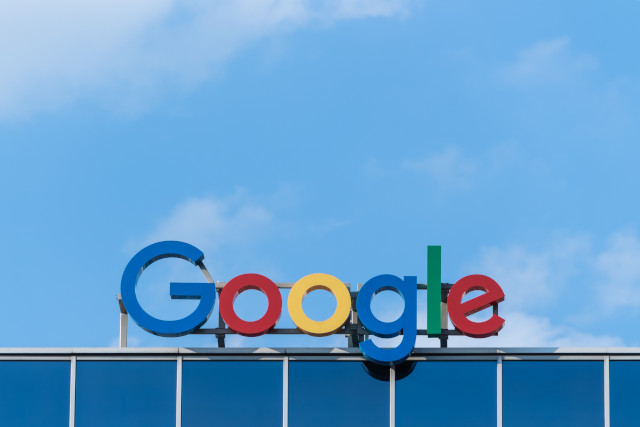
Photo by Timon Studler on Unsplash
The impact of COVID-19 continues to unfurl as more technology companies announce significant staff and spending reductions.
IBM, Uber, and HPE have recently announced major head count reductions joining dozens of other companies over the last two months.
As organizations try to conserve cash, there are rumors and articles predicting a spike in acquisitions in the technology and retail industries.
Acquisitions/Investments
- Large Tech Companies Prepare for Acquisition Spree
“For the largest players, we certainly see this immediate period as a potential opportunity to make plays to aggregate capabilities by acquiring smaller businesses that may need liquidity,” said J. Neely, managing director and global M&A lead at consulting firm Accenture PLC.
Large companies across the economy are seizing similar opportunities to grow, sparking worries about market consolidation in several industries.
https://www.wsj.com/articles/large-tech-companies-prepare-for-acquisition-spree-11590053401
- Intel is acquiring the company behind Killer gaming networking cards
Intel has acquired Rivet Networks, the maker of Killer-branded NICs (network interface cards responsible for managing your connection) found in some laptops from popular brands like Dell, Alienware, HP, and other manufacturers. Killer’s own networking products were noteworthy for providing gaming-centric features like minimizing latency to keep you from missing a beat in-game, and prioritizing network traffic for games and other applications that need it the most.
Rivet Networks has been a competitor to Intel in the NIC space for over a decade. With this acquisition, Intel can capitalize on the gaming market.
- Verizon wraps up BlueJeans acquisition lickety split
While it’s crystal clear that video conferencing is a hot item during the pandemic, all sides maintained that this deal was about much more than the short-term requirements of COVID-19. In fact, Verizon saw an enterprise-grade video conferencing platform that would fit nicely into its 5G strategy around things like tele-medicine and online learning.
They believe these needs will far outlast the current situation, and BlueJeans puts them in good shape to carry out a longer-term video strategy, especially on the burgeoning 5G platform. As BlueJean’s CEO Quentin Gallivan and co-founders, Krish Ramakrishnan and Alagu Periyannan reiterated in a blog post today announcing the deal has been finalized, they saw a lot of potential for growth inside the Verizon Business family that would have been difficult to achieve as a stand-alone company.
https://techcrunch.com/2020/05/18/verizon-wraps-up-bluejeans-acquisition-lickety-split/
- Walmart says it will discontinue Jet, which it acquired for $3B in 2016
Amid the coronavirus crisis and its impact on the retail industry, today the retail giant quietly announced in its quarterly report that it would be discontinuing Jet.com, the online-only marketplace that it acquired when it was just over one year old for $3 billion (plus $300 million in earn-outs over time), as it struggles to bring its e-commerce operations into that black after reportedly seeing a loss of $2 billion in the division in 2019 and shifting how to deliver its e-commerce strategy: by betting on giant stores, rather than online warehouses, as the hubs of its online delivery model.
Jet.com’s fate was disclosed as part of a Walmart’s Q1 earnings report, in which the company said it saw growth of less than 10% in its core US market, and said that it would be withdrawing guidance for fiscal 2021.
Cloud
- Google Cloud earns defense contract win for Anthos multi-cloud management tool
While the company would not get specific about the number, the new contract involves using Anthos, the tool the company announced last year to secure DIU’s multi-cloud environment. In spite of the JEDI contract involving a single vendor, the DoD has always used solutions from all three major cloud vendors — Amazon, Microsoft and Google — and this solution will provide a way to monitor security across all three environments, according to the company.
“Multi-cloud is the future. The majority of commercial businesses run multi-cloud environments securely and seamlessly, and this is now coming to the federal government as well,” Mike Daniels, VP of Global Public Sector at Google Cloud told TechCrunch.
The idea is to manage security across three environments with help from cloud security vendor Netskope, which is also part of the deal. “The multi-cloud solution will be built on Anthos, allowing DIU to run web services and applications across Google Cloud, Amazon Web Services, and Microsoft Azure — while being centrally managed from the Google Cloud Console,” the company wrote in a statement.
Software/SaaS
- Christian Klein, CEO SAP – “We have to own the application layer”
There were disagreements, as you’d expect, but there were some of a fundamental nature where we could not delay the decisions. I’m fully convinced that the hyperscalers will also go up the stack. In the partnerships, we are closing, we have to own the business platform, we have to own the application layer. I want to be more prescriptive on that because when you are losing more and more of the control of the customer transformation when you’re not sitting on the table anymore, when they’re making the decision how to transform the business model, then it gets difficult. I just want to make sure that now in these partnerships, we try our best to make sure that we are in the lead when it comes to business model transformation, when it comes to talks about how to move the system landscape, the application layer in the cloud. And it’s also important that we position our platform there, as we cannot afford to lose the platform game either, as this is the platform which keeps our applications together, makes the integration work. And it’s of course also very important for the extension of our solution. So, this is something where I would like to to draw a much clearer line going forward, because in the past, I feel we were not clear enough in some of these partnerships.
https://diginomica.com/christian-klein-ceo-sap-we-have-own-application-layer
- Here’s why Elon Musk keeps raising the price of Tesla’s ‘Full Self-Driving’ option
There’s another reason Musk thinks the ultimate value of Autopilot is so high. He has promised that once Tesla’s cars are able to drive themselves, the company will leverage that capability into a “robotaxi fleet.” The goal is to make it so that each Tesla customer’s car can double as an autonomous vehicle that other people can hail while the owner isn’t using it.
Not only would operating a robotaxi service generate more revenue for Tesla, but Musk has said this would allow owners to make as much as $30,000 a year as well. In fact, Musk believes the value of this idea is so high that he’s talked about raising the sticker price of Tesla’s cars, not just the cost of the Full Self-Driving package.
“[C]onsumers will still be able to buy a Tesla, but the clearing price will rise significantly, as a fully autonomous car that can function as a robotaxi is several times more valuable than a non-autonomous car,” he said last year.
https://www.theverge.com/2020/5/20/21264345/elon-musk-tesla-full-self-driving-autopilot-price-increase
TL;DR – Because he can.
Other
- ‘Way Too Late’: Inside Amazon’s Biggest Outbreak
In the less than two months since then, the warehouse in the foothills of the Pocono Mountains of northeastern Pennsylvania has become Amazon’s biggest Covid-19 hot spot. More employees at AVP1 have been infected by the coronavirus than at any of Amazon’s roughly 500 other facilities in the United States.
Local lawmakers believe that more than 100 workers have contracted the disease, but the exact number is unknown. At first, Amazon told workers about each new case. But when the total reached about 60, the announcements stopped giving specific numbers.
The disclosures also stopped at other Amazon warehouses. The best estimate is that more than 900 of the company’s 400,000 blue-collar workers have had the disease. But that number, crowdsourced by Jana Jumpp, an Amazon worker, almost certainly understates the spread of the illness among Amazon’s employees.
https://www.nytimes.com/2020/05/19/technology/amazon-coronavirus-workers.html
- IBM hands down first layoffs under new CEO Arvind Krishna
It wasn’t clear how many jobs were being cut, though a source told the Journal that it’s several thousand, out of a massive staff of about 350,000 people.
Bloomberg said the cuts are in several units, including its Global Technology Services division, which does information technology outsourcing, as well as its Watson artificial intelligence unit, a longtime key focus of IBM’s recovery efforts. Cuts are being made in five states: California, Missouri, New York, North Carolina and Pennsylvania.
“IBM’s work in a highly competitive marketplace requires flexibility to constantly remix to high-value skills, and our workforce decisions are made in the long-term interests of our business,” the company said in a statement. It added in an apparent reference to the coronavirus pandemic that it will offer subsidized coverage to all affected U.S. employees through June 2021.
https://siliconangle.com/2020/05/21/ibm-hands-first-layoffs-new-ceo-arvind-krishna/
- Uber Cuts 3,000 More Jobs, Shuts 45 Offices in Coronavirus Crunch
Mr. Khosrowshahi announced the plans in an email to staff Monday, less than two weeks after the company said it would eliminate about 3,700 jobs and planned to save more than $1 billion in fixed costs. Monday’s decision to close 45 offices and lay off some 3,000 more people means Uber is shedding roughly a quarter of its workforce in under a month’s time. Drivers aren’t classified as employees, so they aren’t included.
Stay-at-home orders have ravaged Uber’s core ride-hailing business, which accounted for three-quarters of the company’s revenue before the pandemic struck. Uber’s rides business in April was down 80% from a year earlier.
“We’re seeing some signs of a recovery, but it comes off of a deep hole, with limited visibility as to its speed and shape,” Mr. Khosrowshahi said in his note to employees. The company’s food-delivery arm, Uber Eats, has been a bright spot during the crisis, but “the business today doesn’t come close to covering our expenses,” he wrote.
- HPE Cuts Salaries Companywide as COVID-19 Wrecks Q2
Neri said that beginning July 1, HPE will implement salary cuts for all employees through Oct. 31, 2020, with the executive team taking the biggest hit. Neri and EVPs will see their base salaries cut 25%. Senior VPs’ base salaries will be cut by 20%, and board members will also take a 25% cut to their annual cash retainer.
Employees that live in countries that prohibit pay reductions will instead take unpaid leave. “In addition, we have implemented cost containment measures across the company, and restricted external hiring through the end of our fiscal year, and put salary increases on hold,” Neri said.
Overall, HPE expects the cuts to save at least $1 billion by the end of fiscal 2022.
Neri pointed to a couple of bright points during the quarter. HPE exited Q2 with more than $1.5 billion in backlogged compute, storage, HPC, and Aruba networking orders, which Neri said represents two-times the average historical quarterly backlog despite the challenging economic backdrop.








